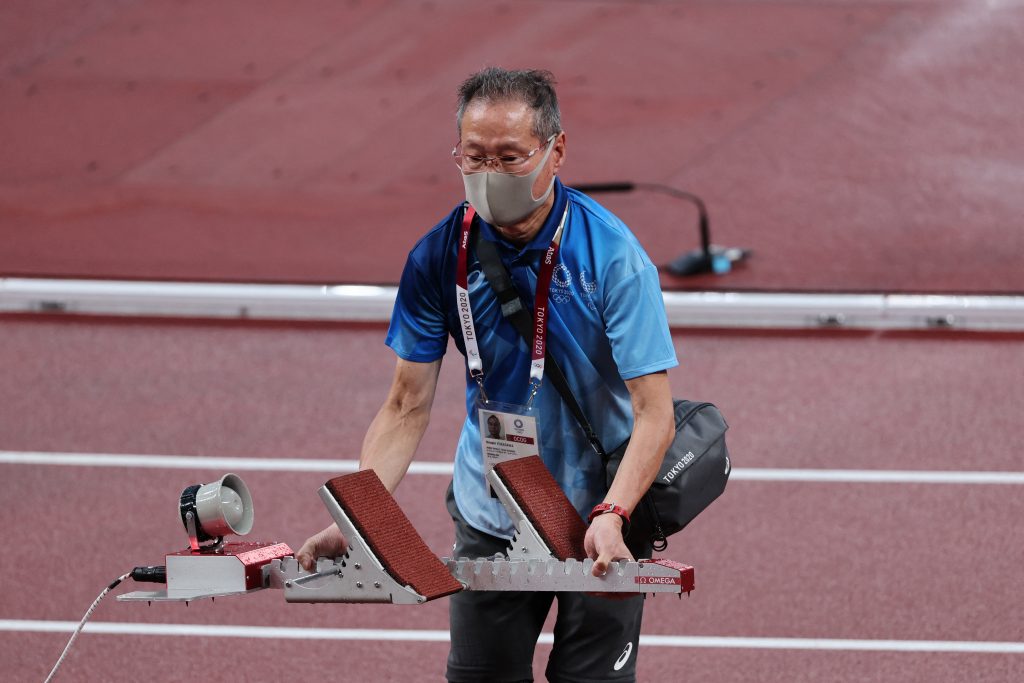
- ARAB NEWS
- 18 Jul 2025

Japan has tapped into its famously ageing population to help run the Tokyo Olympics, with pensioner volunteers — some into their 90s — shrugging off fears about the coronavirus to do their bit.
Takashi Kato’s eyes fill with tears as he recalls how, when he was just a small boy, his mother cried when they watched the opening ceremony together the last time the Japanese capital staged the Summer Games, in 1964.
His parents had lived through World War II and Japan hosting those Olympics two decades later signified something for his mother that went beyond sport.
“Oh, I’m sorry, I cannot help tearing up when I talk about this,” he said, struggling to regain his composure.
“It was my first time to see her crying.”
That memory never left him and sowed the seed for him to become a volunteer at the Games currently taking place in Japan.
Now 62, the retired mathematics teacher is almost a spring chicken compared with some of those who have volunteered.
Of the 71,000 volunteers at the Olympics and Paralympics, nearly 15,000 are aged 60 or over, according to organisers.
There are 139 people in their 80s and even three in their 90s.
The presence of so many older volunteers is striking because the army of unpaid workers that is a feature of any Olympics usually has a younger age profile.
It is not just the volunteers. At the numerous venues dotted around Tokyo and beyond the paid workforce — including in areas such as security, catering and transport — also includes many senior citizens.
It is a reflection of Japan’s demographics — the country has the world’s oldest population, with around 28 percent aged 65 or over, according to official figures.
Kato did at one point wonder if working at the Olympics might put him in danger of contracting Covid-19, with older people more at risk from the virus.
“But I concluded that I should follow through with the desire that I initially had…. I was determined to work as a volunteer,” he said, and hopes that he might even be able to do it again at Paris 2024.
“If possible, I would love to be a volunteer for the next Paris Olympics.
“But probably I would just be a burden on other people without speaking English or French. I will cheer from home.”
Like Kato, Toshio Hongoh also works at the imposing Olympic media centre, where thousands of members of the world’s press have gathered.
He is a very sprightly 73 — and proves it by doing abdominal exercises on a bench that many people 50 years younger would not be able to pull off.
It harks back to when he was a gymnast in his youth. He never made it as far as representing Japan, but he was in the same school gymnastics club as 1972 Munich Olympic gold medallist Teruichi Okamura.
Hongoh has kept fit ever since, including doing triathlons until he was 60 and he still does weight training every day.
Not one to sit at home and put his feet up in retirement since his days working in human resources and corporate communications, he sees volunteering at the Tokyo Olympics as “the last service activity in my life”.
“I can feel that I am still a member of society and I can still contribute something to society,” he said in English, describing his motivations.
“I have been receiving so much from others. I am trying to return what I received from others to these people, to the (Olympic) committee, to the country of Japan.”
AFP